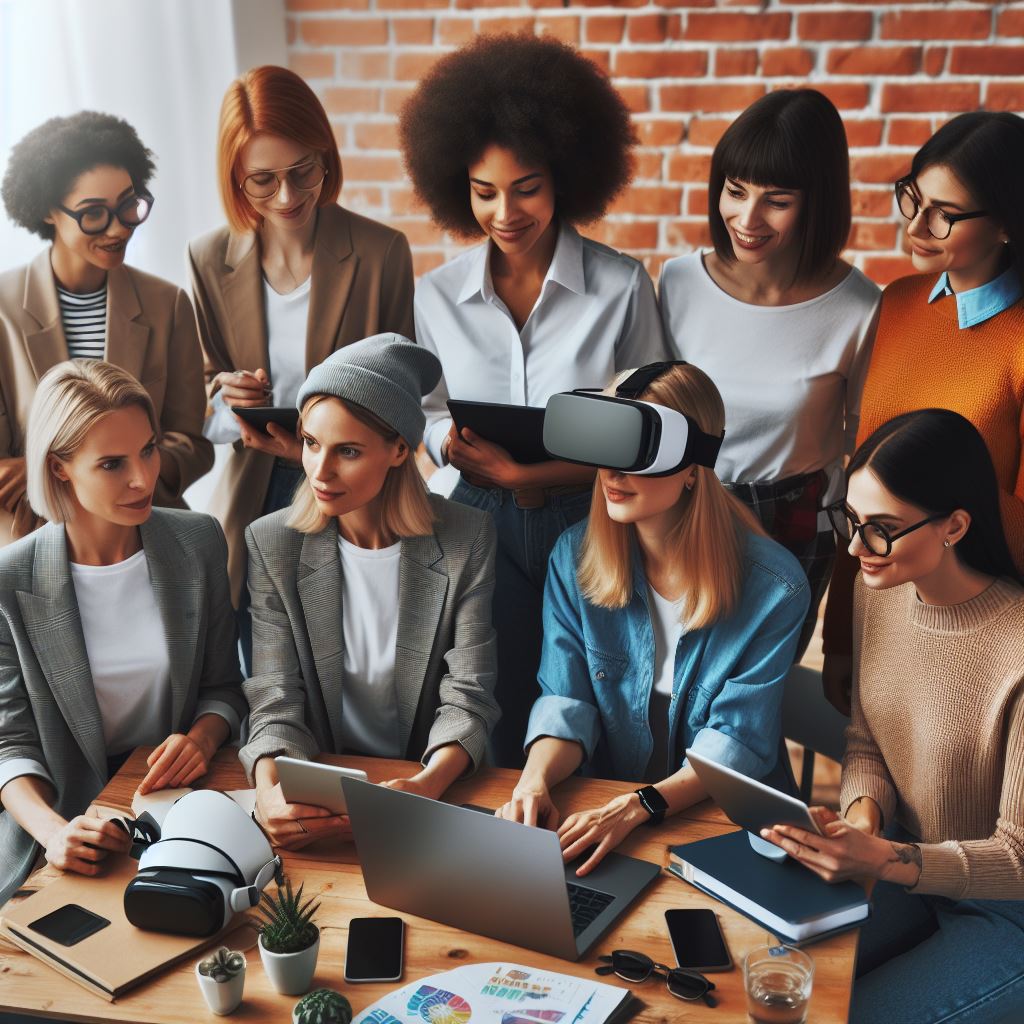
In the fast-evolving landscape of artificial intelligence (AI), the gender disparity is glaring, with only 22% of women comprising the AI workforce globally, as highlighted by the World Economic Forum. Euronews Next delves into the voices of women in AI, exploring why their presence is crucial and what transformations are needed to bridge the gender gap.
Meredith Whittaker: Challenging a Biased Technocracy
At Web Summit in Lisbon, Meredith Whittaker, President of Signal, emphasizes the urgency for a more inclusive AI sector. She identifies a "patriarchal and misogynistic culture" as the root cause of skewed power dynamics in AI development, leading to biased systems that influence crucial decisions, from job interviews to government policies. Whittaker advocates for a shift, urging for those most likely to be affected by AI systems to be the driving force behind their creation.
Natalia Miranchuk: Empathy in AI Beyond the Binary
Natalia Miranchuk, a Belarusian single mother, challenges the notion that a tech background is a prerequisite for contributing to AI. Her AI app, designed to support mothers during pregnancy and prevent postpartum depression, highlights the potential for women to bring empathy and emotional intelligence to AI. Miranchuk believes that women can fill a critical void in AI, enhancing its ability to understand and respond to human emotions.
Hannah Brown: Diversifying the Voices Shaping AI
Co-founder of Organifarms, Hannah Brown, underscores the importance of women's voices in shaping AI products. While acknowledging the current gender disparity, she sees a positive trend with more women entering technology-related fields. Brown emphasizes the need for role models and representation to inspire the next generation of women to pursue careers in AI, ensuring that AI products are designed with inclusivity in mind.
Joana Rafael: Positive Discrimination and Balancing Family Roles
Joana Rafael, co-founder of Sensei, advocates for positive discrimination to address the gender gap in AI. While cautioning against extreme measures, she highlights the importance of empowering women in the sector. Rafael also addresses the societal shift required for men to play a more significant role in family responsibilities, contributing to a more balanced and inclusive work culture.
As these women in AI redefine the industry landscape, their insights underscore the necessity of a diverse workforce to ensure AI reflects the needs and experiences of all. The call for inclusivity in AI isn't just about equal representation; it's about creating technology that truly understands and serves the entirety of humanity.